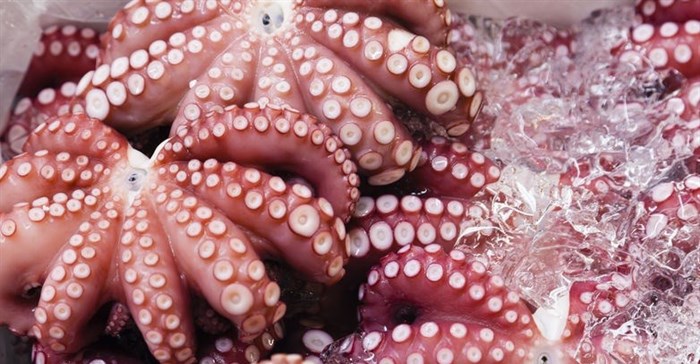
The project will use the MSC Fisheries Standard to benchmark the sustainability of octopus fishing in the region. It will then identify opportunities to support stakeholder efforts to improve the sustainability of these fisheries in Madagascar, Kenya, Tanzania, Zanzibar, Mozambique, Rodrigues and Comoros, among others. Government representatives, fisheries managers, private sector representatives and octopus fishers operating in the south western Indian Ocean (SWIO) have committed to collaborate in the new project.
This will be first time that the sustainability of octopus fishing has been comprehensively mapped across multiple African countries and offers conservation and market opportunities.
Artisanal fishing for octopus, mainly Octopus cyanea, has been practiced for centuries in the SWIO. Octopus are an important resource for many coastal communities, especially in Tanzania, Madagascar, Rodrigues and Mozambique, and are both consumed locally and sold for export to Europe.
With the first octopus fishery achieving MSC certification in early 2016 (Western Asturias trap octopus fishery, Spain), interest in sustainably sourced octopus is growing. Supporting fisheries in the SWIO region to enter fisheries improvement projects (FIPs), targeting eventual MSC certification, therefore provides an opportunity to capitalise on this rising demand.
On 15 and 16 March 2017, stakeholders met in Zanzibar to mark the start of the project. Implementation will involve close collaboration with AU-IBAR and Blue Ventures. AU-IBAR is working to implement the new Policy Framework and Reform Strategy for Fisheries and Aquaculture in Africa, of which a key objective is to achieve responsible and equitable markets for seafood. Blue Ventures will share expertise gained from another project to improve the sustainability of octopus fishing in Madagascar.
Commenting on the launch, Obinna Anozie representing the director and head of mission of AU-IBAR congratulated the countries on their commitment to the project: “We are very pleased to be involved in a project of this magnitude, greatly supported by regional leadership and aimed at ensuring food security and the livelihoods of western Indian Ocean communities.”
Dr Oluyemisi Oloruntuyi of the MSC added, “It’s encouraging to see the uptake of the MSC Fisheries Standard as a tool for benchmarking and facilitating change in global fisheries. The MSC Standard is widely accepted as the most rigorous and scientifically based certification scheme for wild-caught fisheries and, increasingly, is being seen as a tool for guiding fishery improvements.”